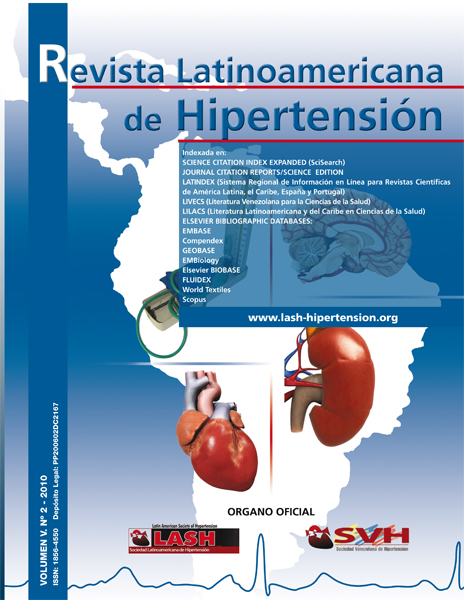Increased adenosine deaminase serum activity in patients with acute myocardial infarction
Keywords:
adenosine deaminase, acute coronary syndrome, acute myocardial infarction, creatine kinase.Abstract
With the aim to evaluate adenosine deaminase serum activity in patients with acute myocardial infarction, a prospective, observational study were done in 56 patients admitted to the central hospital emergency room with a diagnosis of acute myocardial infarction; 32 had elevation of ST segment in the electrocardiogram, of which 24 underwent thrombolysis therapy and 14 evolved a Q wave.Each patient was submitted to a clinical evaluation and serum activity of T troponin, creatine kinase, creatine kinase MB isoform of and adenosine deaminase were determined.Results illustrated that adenosine deaminase serum activity was 109.6 ± 8.34 nmol/mL, decreasing after treatment to 82.34 ±7.45 nmol/mL and 81.82 ± 9.40 nmol/mL at 24 and 72 hours, respectively, which it was significantly related in those patients that displayed no EST in electrocardiogram and received no thrombolytic treatment. In these patients adenosine deaminase activity was correlated with creatine kinase activity. In patients with elevationof ST segment (independently of developing a Q wave) receiving thrombolytic treatment, the adenosine deaminase serum activity remained elevated and unchanged. In conclusion: adenosine deaminase levels can be used as a molecular marker of the evolution in acute myocardial infarction patients receiving no thrombolytic therapy and presenting no changes in the ST segment.Downloads
Download data is not yet available.
Downloads
Issue
Section
Artículos

